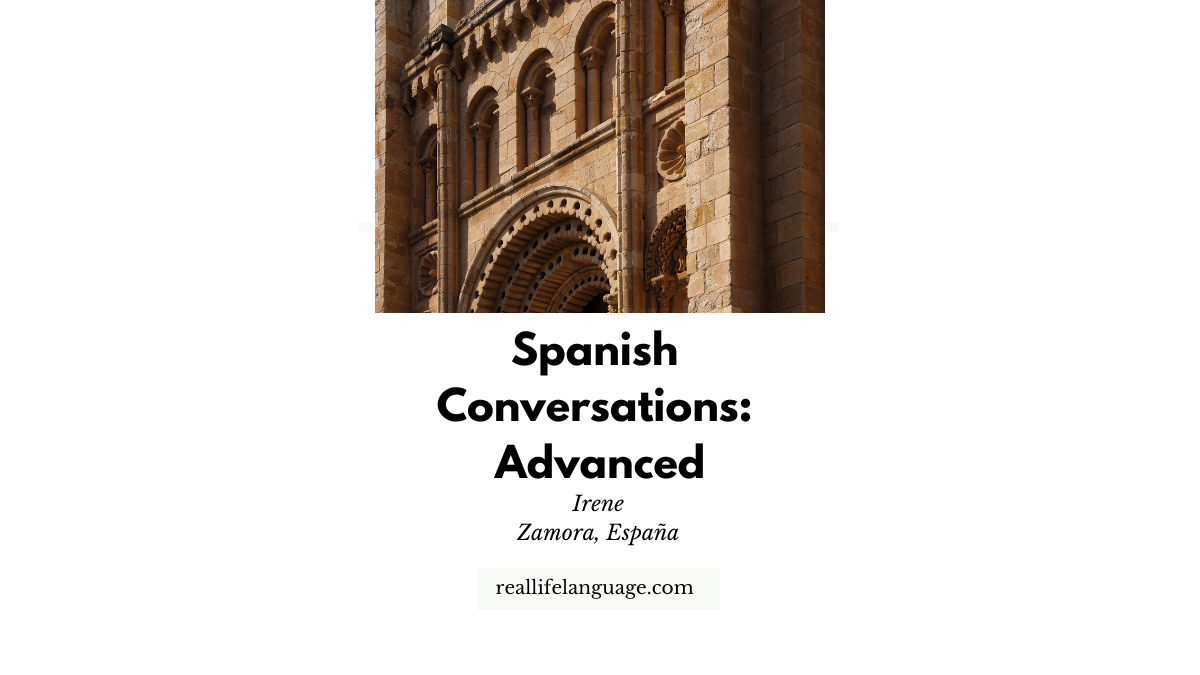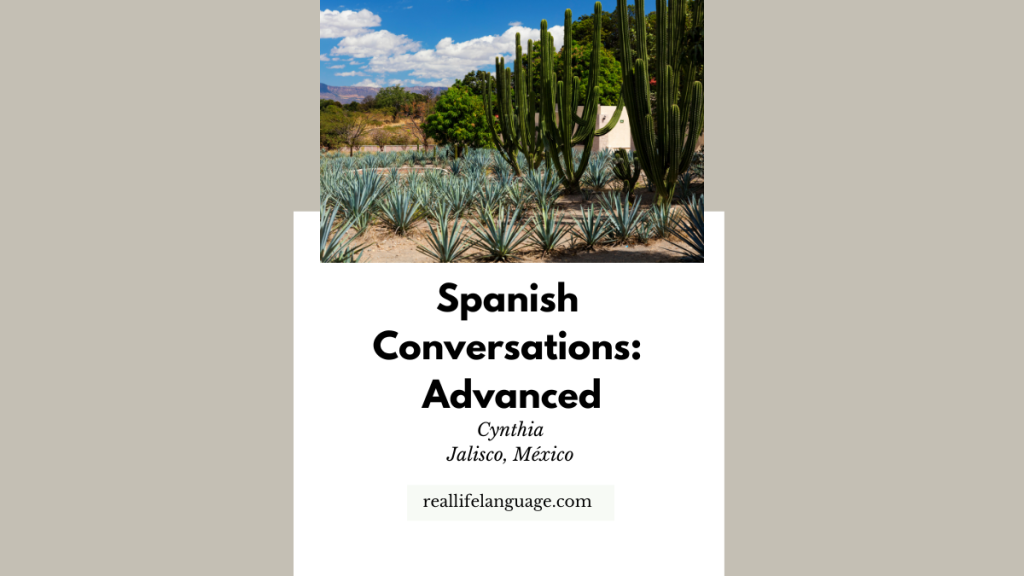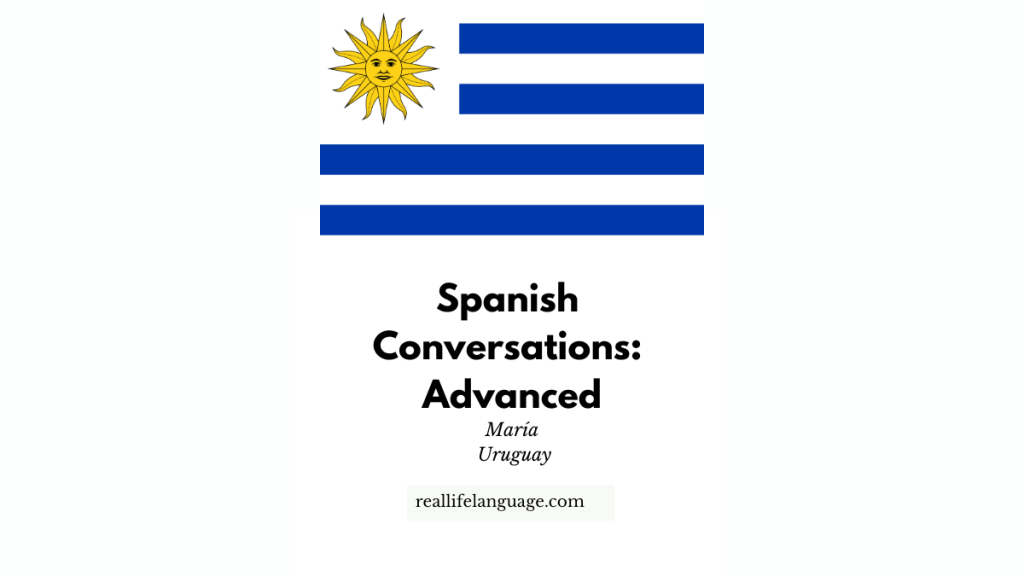
This article unpacks a conversation with Irene, a Spanish speaker from Madrid, and turns her reflections into practical lessons for learners who want to learn advanced Spanish. The original video presents real-life topics — travel, gender, economy, education, parties, family and current events — delivered in a natural, conversational register. Below, readers will find a clear summary of Irene’s experiences, key vocabulary and phrases, plus study activities designed to help learners bridge the gap between classroom Spanish and authentic speech.
Outline
- Life and travel: Personal background
- Women in Spain: Social change and vocabulary
- Economy and housing: Everyday concerns and useful terms
- Education: Critiques and opportunities in Spanish schools
- Parties, food and leisure: Cultural expressions and phrases
- Current events: How nearby conflicts affect perceptions
- Family and the pandemic: Personal impact and language to describe it
- Practical learning tips: Activities and phrases to practice
Life and travel: a restless spirit
Irene describes herself as a keen traveller: “staying in one place drives me crazy.” She has lived and worked in Estonia, Latvia and Georgia, and returned to Spain during the pandemic to be close to family. Her story is useful for learners because it provides everyday structures and vocabulary about movement, work and emotion.
Useful phrases
- Quedarse en un solo sitio me agobia — “Staying in one place overwhelms me.”
- Volví a España por motivos personales — “I returned to Spain for personal reasons.”
- Me cogió la pandemia por sorpresa — “The pandemic caught me by surprise.”
Women in Spain: progress and generational differences
Irene explains that Spain discusses women’s rights more openly than some neighbouring countries, and that the conversation has shifted between generations. Her take is nuanced: there is more awareness now, but everyday sexism and workplace inequality persist.
“There is more knowledge of the problems that exist and names are given to things that before were normal.” — Irene
Vocabulary and conversation starters
- Igualdad de género — gender equality
- Machismo — chauvinism / male chauvinism
- Día de la Mujer — International Women’s Day (often used to debate meaning and rituals)
- Dar flores — to give flowers (Irene contrasts this gift with political protest)
The economy and housing: the visible constraints
On the economy, Irene highlights Spain’s dependence on tourism, the pressure on housing prices (especially in Madrid) and fears about future pensions. This section offers practical phrases for discussing money, work and cost of living.
Key vocabulary
- Turismo — tourism
- Pensiones — pensions
- Inflación — inflation
- Hipoteca / alquiler — mortgage / rent
Example sentence for practice: “Con los precios y la inflación, las cuentas no salen.” — “With prices and inflation, the numbers don’t add up.”
Education: from memorisation to projects
Irene criticises rote learning in earlier schooling but notes positive change in secondary education: project-based learning is becoming more common. She admires vocational training (formación profesional) for its practical results and praises public universities despite a tight job market.
Useful phrases for discussing school
- Memorizar — to memorise
- Enseñanza por proyectos — project-based teaching
- Formación profesional — vocational training
- Universidad pública — public university
Parties, food and leisure: what gatherings look like
Social life in Spain revolves around food, terraces and family celebrations. Irene explains the typical structure of events: ceremony (if religious), then the banquet, lots of eating, and later dancing to well-known songs like “La Macarena” or “Aserejé.” She also describes local town festivals (fiestas de pueblo) and, for some towns, bullfights (corridas).
Practical vocabulary
- Banquete — banquet
- Terraza — outdoor café/terrace
- Fiestas del pueblo — town festivals
- Comunión — (First) Communion
Current events: proximity to conflict
Living close to regions affected by Russian occupation and war, Irene reflects on how neighbouring conflicts shape local opinion and hardship (for instance, older generations remembering Soviet-era stability). She talks about refugees, volunteers and the sensitivity around international sanctions.
Useful expressions
- Refugiados ucranianos — Ukrainian refugees
- Ocupación — occupation
- Medidas económicas / sanciones — economic measures / sanctions
Family and the pandemic: personal cost and professional change
Family remains central. Irene misses moments with relatives and balances that with economic realities. Professionally, the pandemic increased her online teaching opportunities but reduced face-to-face interaction — a common trade-off for language teachers.
Key phrases
- Comidas de familia — family meals
- Siento que me pierdo cosas — “I feel like I miss out on things.”
- Clases en línea / presenciales — online / in-person classes
Study tips: how to learn advanced Spanish with real conversations
To learn advanced Spanish using authentic interviews like this one, try the following:
- Listen actively: Transcribe 1–2 minutes of the audio and compare with a written version. Note idioms and filler phrases (e.g., “a ver”, “bueno”, “pues”).
- Shadowing: Repeat sentences aloud immediately after the speaker to improve rhythm and intonation.
- Phrase notebooks: Collect 10–20 useful phrases (see lists above) and write example sentences in different tenses.
- Role-play: Recreate the interview setting with a partner. One plays the interviewer, the other Irene, and then swap.
- Focused grammar: Identify 2 grammatical structures used naturally (e.g., “tengo que” + infinitive, past tenses) and make short drills to master them.
Target phrases to practise daily
- Me cuesta… — “I find it hard to…”
- Me agobia estar… — “It overwhelms me to be…”
- Eso me hace sentir… — “That makes me feel…”
- Lo que más me gusta es… — “What I like most is…”
Conclusion
Real-life conversations, like the one summarised here, are a rich source for anyone who wants to learn advanced Spanish. They offer natural vocabulary, cultural insights and real grammatical models. Learners should combine listening, shadowing and active production (speaking or writing) to move from comprehension to confident use.
Use the phrases above, practise the suggested activities, and return to authentic interviews regularly — the steady exposure will make a measurable difference to fluency.
100s of videos to learn Spanish:
https://real-life-language.kit.com/b1531a6404
Learn Advanced Spanish: Insights from a Conversation with Julia from Puerto Real

